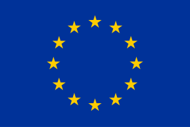BIOFACH 2017
Visit IFOAM EU at our BioFach 2017 stand: 15 – 18 February, Hall 1 (1-447)
Express your opinion and learn more about organic food and farming in the European Union! More details in the timetable below.

Programme
The disproportionate focus of the Common Agricultural Policy on high volume, low-cost commodities is not working for farmers or society. This workshop will discuss solutions for a rebooted CAP that can better encourage farmers to develop more sustainably, and fully recognise those who already deliver public goods such as clean water and healthy soils.Organic cosmetics and textile: how to protect the term ‘organic’ for non-food areas.
Organized by IFOAM EU in cooperation with BIOFACH
On 24 March 2014, the European Commission published its legislative proposal for a new Organic Regulation. After 2 years of negotiations, the 3 EU institutions (Parliament, Commission and Council of the EU) are about to come to a consensus on the legislative text.
New EU standards and food labelling initiatives, such as Product Environmental Footprint, are a challenge to the organic sector, which needs to improve its environmental performance and climate credentials to remain relevant to consumers and policy-makers.
Organic products that today are not covered by specific EU regulations are gaining increasing market share.
The internationally endorsed private standards for organic cosmetics and textile will come together to discuss possible further protection of the term organic for non-food products.
The seminar will focus on the organic trade between the two largest organic consumer markets (together more than 50 billion euros): the EU and the US.
Market trends and regulatory issues will be discussed after 5-year experience of the organic equivalency agreement signed in 2012.
With strong demand for organic products, there are great opportunities for stakeholders to work with policymakers to grow a more sustainable agri-food sector. The workshop will discuss how organic action plans can provide a framework for devising strategies, targets and funding mechanisms and help regional and national organic sectors to develop.
Better knowledge exchange is necessary to enhance organic farming. The OK-Net Arable knowledge platform provides a wide range of resources, and a virtual meeting place for cross-border learning. In this event, the knowledge platform and experiences with farmer-led innovation will be presented.
More and more patents are granted on plants and animals derived from conventional breeding. This hinders innovation in breeding and is a threat to food security. In this workshop different stakeholders will explain what they do to stop patents on our food. After that we will be a podium discussion.
The organic control system will face important change following the adoption of the new organic regulation and the new EU Regulation on Official Controls for food and Feed in 2016.
How will these changes impact the work of the control bodies and operators? How the international trade?
Brexit is already having a major impact on both the EU and the UK. Explore the impact on organic and the opportunities to transform food and agriculture policy created by this major shift. How can the economic other benefits of organic be used to obtain good policies in this context?


